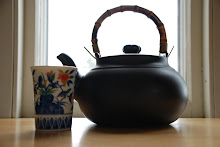
She still walks with a limp although I no longer see her with a cane. It's been three years since her back surgery, but I remember well the day she came to see me for the problem. She was a patient whom I've known for a long time although I rarely saw her. When I did, it was often for something serious, when she couldn't ignore the problem any longer.
I saw that she was unable to rise from her chair without pushing herself forward, each hand clutching an armrest. It had been this way for days, she said. Her legs felt weak and numb, her balance unsteady. At home, she'd walk upstairs, holding onto the banister and suddenly watch her legs crumple beneath her.
I helped her to the examining table. Her arms and legs were visibly weak, she lurched while holding on to my arms. After I finished examining her, I reviewed my concerns with her: she needed an MRI of her back right away - she was facing imminent quadriplegia.
Several days later, she had urgent back surgery to relieve the narrowing spinal canal that was pressing on her spinal cord. I'd see her several times a year after that. Initially, her husband whom I had met but once, came along to her appointments, pushing her in a wheelchair. Months later, she came alone, moving down the hallway with a four-wheeled walker, her steps halting but resolute.
Now, she is in her chair, upright, and her smile is genial but wry. She knows that I will ask her if she has stopped smoking, if she has cut back on the sodas to get her weight down. She prepares herself to be truthful.
I ask her how she fared during the recent storm, the one that knocked out power lines, flooded the city streets and basements.
She shakes her head and looks at me ruefully. She had watched the events unfold on TV as they were happening in other parts of the city. Then, she looked out her window and saw the rain pouring onto her lawn. Minutes later, her son cried out from the basement: water was cascading through their windows, onto their sofa and carpeting. Mother and son looked on silently as the water filled up their basement.
She recounts her story with animation. There is more work to do, she says. They are discarding most of the contents of their basement and have gone through what could be salvaged with buckets of bleach and water.
She no longer has her stationary bike to ride daily, it's waterlogged alongside the washer and dryer. But she'll walk in her neighborhood for exercise, she says.
Her voice is unwavering when she speaks.
I'm down to half a pack a day. I'll quit soon.
We say goodbye, and she easily rises from her chair to leave.























































